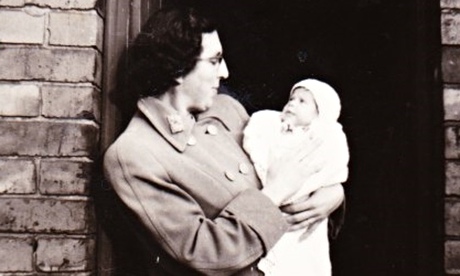Born in the United States amid gunfire, civil war, the antislavery movement and the feminist fight for suffrage, Mother’s Day was meant to be more than it is today. More than a day where mothers like me are “allowed” to have a lie in, eat cold toast, drink cold coffee, and open cards crafted by earnest children. I can’t help thinking: shouldn’t there be more?
An early iteration of Mothers’ Day (note the collective possessive) was established by abolitionist and suffragist Julia Ward Howe in the 1870s after the end of the civil war. It was never about confining a mother’s purpose to the unpaid service she gives her children and partner. Howe held the common first-wave feminist belief that (white) mothers could and should have a political voice to shape their world.
Mother’s Day as we know it today was first celebrated on the second Sunday of May in 1908. Founder Anna Jarvis worked to realise the wishes of her mother Ann Reeves Jarvis, a pacifist and abolitionist who wished to acknowledge individual mothers, to “commemorate the matchless service she renders to humanity in every field of life [my emphasis]. She is entitled to it.” Its singular possessive indicated a shift in focus from the collective social responsibility Howe envisioned in her Mothers’ Day proclamation. Historian Stephanie Coontz, author of The Way We Never Were: American Families and the Nostalgia Trap, writes that Jarvis was “dismayed” when politicians, merchants and anti-suffragists were quick to support a more familial focus.
In 1914 US president Woodrow Wilson proclaimed it a national holiday – with a twist. The 1914 speeches linked explicitly to women’s roles in home life and privacy, rejecting suffragist visions of women as a political class with important political and social roles outside the home.
My discomfort with modern Mother’s Day increases when male politicians speak. “How good’s Mum?!” Australian prime minister Scott Morrison boomed in 2019. “Our mums speak of the surety of selfless love, the most powerful thoughts in the universe.” These “most powerful thoughts in the universe” didn’t cut through to those who designed the Morrison government’s 2020 budget, which virtually ignored women-dominated sectors hardest hit by Covid-19. Mother’s Day being used as a platform for a political posturing is just one thing Jarvis worked tirelessly against.
Jarvis prescribed hand-written letters or cards, and white carnations as Mother’s Day gifts. She was enraged when florists sold the inexpensive flower for a dollar a stem. In 1923 she stopped political and commercial Mother’s Day celebrations in New York, citing breach of copyright. Jarvis grew increasingly litigious as Mother’s Day slipped away from her ideals, even starting campaigns to have the day cancelled. The fight against the politicisation and commercialisation of Mother’s Day at the hands of the floral, card-making and candy industry was one she would lose. Janet Hayden, who founded Australian Mother’s Day in 1924, weathered the commercial storm with resignation, hoping it would at least ensure the continued commemoration of the day. And arguably, it has.
Today’s Mother’s Day marketing images burst with beneficently smiling women sporting pastel palettes and flannelette pyjamas, attended by similarly attired, similarly beautiful children. Sometimes we even get a glimpse of a woman over 50. There’s no question of what these sanitised, manufactured images of domestic bliss – so far removed from the grit of actual motherhood – are selling us. But why?
There’s a reason these images are celebrated. There’s a reason structural barriers such as Australia having the fourth-most-expensive childcare in the world, with a tax penalty to disincentivise mothers returning to work full-time exist. Now, as in Jarvis’s time, this imagery of benign motherhood serves our society’s power imbalance – which relies on the unpaid labour of mother-women and feminised nurture. The deification of selfless maternal love as the pinnacle of womanhood is a loaded gun – even after first, second and subsequent waves of feminism, the message still seems to be: men have careers, some have power. Women have children. It’s not that feminism doesn’t “work”; rather its gains are opposed or regressed by waves of conservatism.
Maybe it was the thrill of seeing mass women-led activism this year, or my middle age, but Mother’s Day’s saccharine, intensely nuclear family focus feels increasingly suffocating. I think of Mother’s Day’s founders, women forcing social change in comparatively repressive times, re-envisioning motherhood as a sovereign, outward-looking occupation. This vision was taken from us by those with conflicting interests. Former Labor MP Kate Ellis writes in Sex, Lies and Question Time: “The gains women have made have only ever been achieved as a result of protest and agitation, pressure and persuasion.” Why perpetuate the myth of ideal mothers endlessly stifling themselves for a pay off of flannelette pjs and breakfast in bed every May? There should be more.
• Jennifer Zeven is a freelance writer on mothering, parenting and other feminist concerns. She is working on her first manuscript









